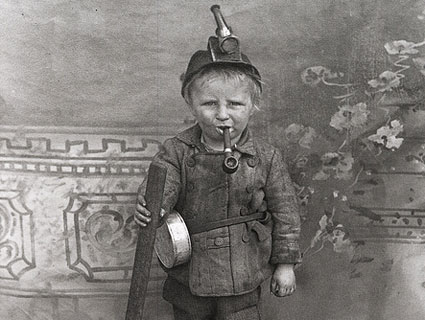Earlier this year environmental and educational groups criticized the publishing giant Scholastic for partnering with the coal lobby to produce classroom materials on energy. The company ended up apologizing for it shortly thereafter and promising to be more vigilant in the future when partnering with outside organizations. But even with the a new advisory board and standards, the company still plans to partner with Big Egg for classroom educational materials.
Last week, the company issued a statement from its president and CEO Richard Robinson with an update on the actions it’s taken since the coal kerfuffle. It noted that it is now focusing on working “only with a carefully selected list of non-profit, corporate and government partners,” which will be vetted by a new board it created. Robinson predicted that this will result in axing a number of their corporate partners and about 40 percent fewer partnerships overall in the next year. The company also stated that it is “strengthening the editorial review of sponsored supplemental educational content and putting additional checks in place to ensure the accuracy and impartiality of the content.”
In an interview with the New York Times, Robinson acknowledged that “once in a while there was a slip-up in editorial judgment” when it came to their sponsorship program, and vowed to improve. In addition to the coal group, its corporate partners have included the water filter company Brita, Microsoft, Disney, Nestlé and Shell.
But as the Times noted, the company still plans to partner with trade groups like the American Egg Board—the flacks behind the “Incredible Edible Egg” slogan. From the piece:
In the 2010-11 school year, the program included a Back to Breakfast contest in which 12 teachers each won $5,000 for short essays describing how they would use that grant, with the winners creating videos to post on YouTube. In one video, “Eggucation Week Back to Breakfast Challenge,” a Chicago fourth-grade teacher tells of teaching her students about the benefits of eating eggs, and asking them to create egg recipes. Susan Linn, director of the Boston advocacy group, said the egg program raised many of the same issues that the discontinued ones had.
The Campaign for a Commercial-Free Childhood points out that while healthy eating is of course an excellent educational topic, that information is probably not best presented by Big Egg.
Meanwhile, a conservative Christian group is now going after the Scholastic for another item in its collection: The Magic School Bus and the Climate Challenge. The Magic School Bus series is among its most popular, but the Cornwall Alliance argues that the book is promoting “global warming alarmism” in schools. The group also uses this as an opportunity to promote their own video series about how environmentalists are pushing “anti-Christian” views. Perhaps they’d prefer that Scholastic keep the lessons sponsored by Big Coal?













